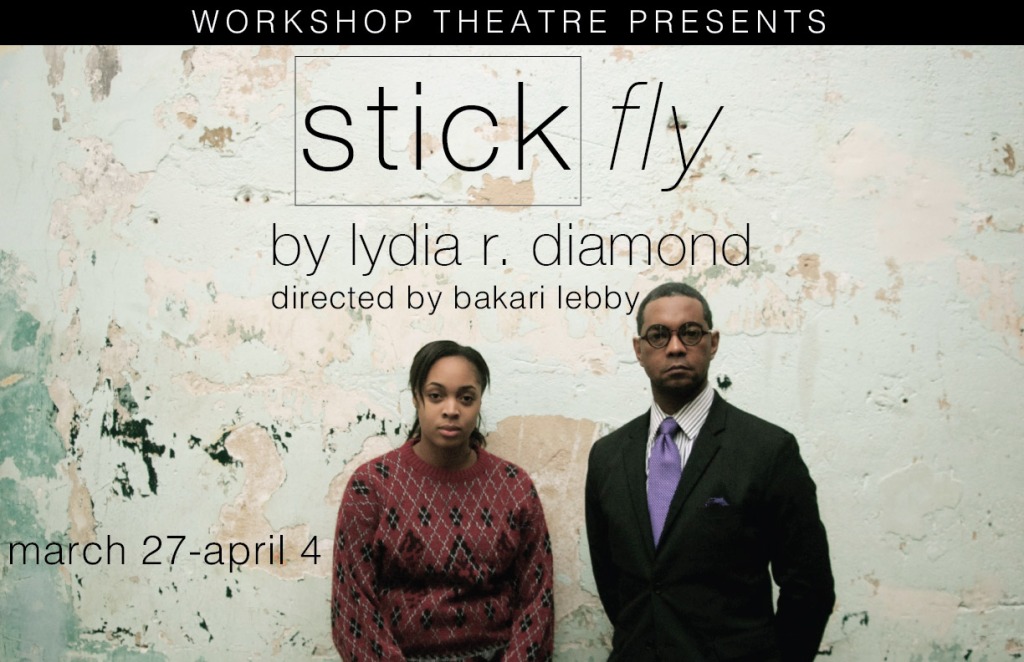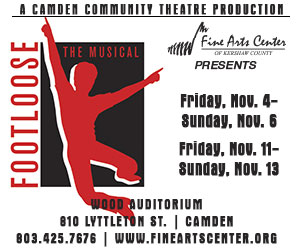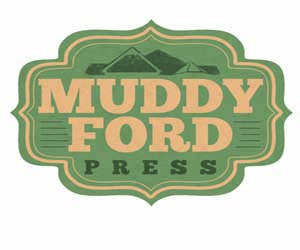by: Haley Sprankle
“I originally pitched this show as The Cosby Show with a sex scandal.”
Bakari Lebby definitely adds his own quirky spin on Lydia R. Diamond’s Stick Fly, the fourth show he has directed this season at Workshop Theatre. No rookie to the stage, Lebby has been involved a myriad of productions for the theatre, but this is his debut as a main season director.
“It has been cool. It feels like home,” the young director says. “I brought over a show that I directed at Carolina for a two-night run about two years ago and that was my first time working behind the scenes there. I did two [productions] last year with two directors that I really respect, Chad Henderson and David Britt, so that was cool, but yeah, Workshop is home.”
While his theatrical home has changed a bit, Lebby adapts to working and staging in 701 Whaley’s Market Space where each of the previous shows this season were produced.
“Theatre can be done anywhere. The only thing is the time constraints,” Lebby elaborates. “We’ve already pretty much built everything, and it all has to go up in about a day which is totally cool because we have a great set designer, Billy Love. It’s a cool space. It’s pretty intimate, so I’m excited for close contact with the stage.”
The play itself revolves around the LeVays, a wealthy African-American family who come together for a weekend vacation. The conversations focus on the issues the family faces with race, gender, and privilege.
“They’re like any other family,” Lebby explains. “Loving, protective. There are secrets. But they are also extremely wealthy. Martha’s Vineyard homeowners wealthy. Homes in Aspen and New York and Atlanta wealthy. On the surface, they could seem like the Huxtables [The Cosby Show] grown up.”
Lebby brings the audience into this world through his eccentric style in performance and design.
“Well, the play is set in Martha’s Vineyard, so it will all be on the first floor of a beach house,” he says. “It will be like watching a Wes Anderson-type set (mostly thinking of in The Life Aquatic) where each room is very specifically different, but the actors very easily flit from one room to another while all still feeling like one all-encompassing space.”
“I wanted the set to be a bit sitcom-y. I’ve accelerated the dialogue a bit to match my style more. Actors are occasionally interrupting each other mid-conversation. That’s also more my style. We’ve also taken the script and used it to make any character the protagonist or antagonist depending on the viewer’s opinion or emotions.”
These opinions and emotions address very real controversy in what may be perceived as a surrealistic life.
“The play not only addresses race, but also class and gender roles. There are relationships where race is an issue more than class, race is an issue including class, class is an issue more than race, and so forth. Even within race, there are colorism issues which are still prevalent in current society,” Lebby points out. “It also brings up the whole point that racism is still alive, but no one wants to talk about it past pleasantries. Kimber [a character in Stick Fly] has a line that rings true, ‘They don’t even want people to say that it still exists.’ It does, and I think this play brings up the point that the only way to make it better is to talk about it.”
Stick Fly opens March 27 and runs through April 4 and 701 Whaley’s Market Space. Call the box office at 803-799-6551, or order online at workshop.palmettoticketing.com for tickets.
“I wanted to take a play that could have been only entertainment and turn it into a piece that makes people think and consider their relationships with family, friends, lovers, and strangers,” Lebby eloquently adds. “Oh, and I want you to be able to laugh also. Gotta have some laughs. And there are definitely some laughs.”







.jpg)
Why is subpar material like in the red and brown water given voice at trustus. There are so many classic black vehicles like a raisin in the sun available. There was a play performed recently at trustus where the first scene opens with Jocelyn sanders examining a piece of dog crap and debating the worthiness of it as fertilizer. Just to perform a play for shock value to be advant garde or to confirm to yourself that you’re a legend in your own mind is just a waste of time and talent. Focus on the great gains since the civil rights act that have been made. Enough of all this anger, strife, and oppression! The antebellum south is over!
As director of “In the Red and Brown Water”, I thought it’d be appropriate to reply to the post from earlier (especially since that’s the rule of the information age). Trustus is producing Tarell Alvin McCraney’s Brother/Sister Plays because he’s considered one of the most important voices in modern theatre – and I personally agree. His awards include 2008 London’s Evening Standard Award for Most Promising Playwright, 2009 New York Times Outstanding Playwright Award for “The Brothers Size”(part two of the Brother/Sister Plays), 2009 Steinberg Playwright Award, 2013 Windham–Campbell Literature Prize, and the 2013 MacArthur Fellowship “Genius Grant”. The international critical community has deemed him an important writer and his plays have seen stages all over the world – I would hardly call his work or his plays “subpar”. “In the Red and Brown Water” focuses on community, and the challenges that occur when we pursue our dreams and they are contrasted by circumstance – a universal theme that many can relate to. I’d be remiss in not mentioning that this particular production or script had nothing to do with the antebellum south as it was derived from the Yoruban cosmology and was set in the “distant present” of a fictional location in Louisiana (however the playwright might argue that everything about today has roots in the past). Many of the actors in this production also told me that they were enthused that McCraney was writing African-American characters who weren’t gang members, slaves, servants, pimps, or prostitutes. I’m grateful for it as well.
The show with Jocelyn Sanders was August Wilson’s “Gem of the Ocean”. Mr. Wilson is the winner of many prestigious awards including two Pulitzer Prizes, so I would certainly consider him an important writer much like Lorraine Hansberry (who’s work you cited above as a more relevant production for modern audiences) The opening of “Gem” was an inciting incident that starts exposition. It was meant to start a story – not shock the audience. I’m not sure any theatre worth its ilk would do anything for shock value. Trustus endeavors to produce the best in contemporary theatre, and it just so happens that many of the Pulitzer, Tony, and other award winning shows examine life. Life is not easy for many folks out there, and with theatre being an art form that continually examines the human experience – we just may see some things that are shocking…made so because they are REAL.
I am unable to make any educated comment on Mr. Lebby’s work on “Stick Fly” as I haven’t been able to see it yet, or read the script – but I know he’s a thoughtful storyteller that’s starting his career. He’s also directing the first contemporary piece of Workshop’s current season (this play was published in 2008). So I must send cheers to him and the theatre for giving a burgeoning storyteller a space for his voice and for producing contemporary work.
In the end – I will always support anyone striving for the avant garde and share a lack of enthusiasm for those favoring pure entertainment. The definition of avant garde is “new and unusual or experimental ideas, especially in the arts, or the people introducing them.” As a director and an artist I must support the avant garde – innovation is paramount. Otherwise you’re created something as easily disposed of as cotton candy, and it has similar health issues – but instead of rotting the teeth it rots the brain. The hope for more pleasant scripts is a deeper dialogue. The challenge is finding plays by African-American playwrights that DON’T examine race and privilege – perhaps because these artists still feel that it’s a relevant conversation? I know I do.
I thank you for your thoughts though – I’m not one to expect that every show will speak to every patron. And I do thank you for giving these shows a chance and seeing them. The chance to experience, respond and create dialogue is what good art is supposed to do.